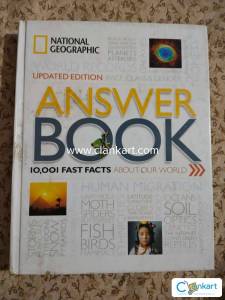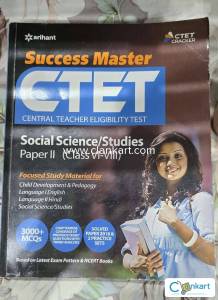Buy used History & Archaeology books online in India
Buy Second Hand Books, Used Books Online In India
Jawaharlal nehru:The Discovery of India
In conjunction with the Jawaharlal Nehru Memorial Fund in New Delhi, Oxford proudly announces the reissue of Glimpses of World History and The Discovery of India, two famous works by Jawaharlal Nehru. One of modern day's most articulate statesmen, Jawaharlal Nehru wrote a on a wide variety of subjects. Describing himself as "a dabbler in many things," he committed his life not only to politics but also to nature and wild life, drama, poetry, history, and science, as well as many other fields. These two volumes help to illuminate the depth of his interests and knowledge and the skill and elegance with which he treated the written word!!
National geographic
For anyone who has pondered the vastness of our universe,the rich variety of our planet and the endlessly fascinating world of knowledge that surrounds us,National Geography presents this timely volume,now fully updated and expanded.Exploring a full spectrum of topics ,from the universe to climate and weather,from the human world to science and technology,this meticulously written and extravagantly illustrated book is the ultimate family reference.
Yatharth bhagvat Geeta
The **Bhagavad Gita**, often referred to as the **Gita**, is a 700-verse Hindu scripture that is part of the Indian epic **Mahabharata**, specifically in the **Bhishma Parva** (Book of Bhishma), chapters 2340. It is written in **Sanskrit** and is presented as a dialogue between **Prince Arjuna** and **Lord Krishna**, who serves as his charioteer.### Key Highlights of the Bhagavad Gita:1. **Context**: * Set on the battlefield of **Kurukshetra**, where two groups of royal cousins, the Pandavas and the Kauravas, are about to go to war. * Arjuna, a warrior prince, is morally troubled about fighting his own kin and teachers in battle.2. **Main Themes**: * **Dharma (duty/righteousness)**: Krishna urges Arjuna to perform his Kshatriya (warrior) duty without attachment. * **Yoga**: The Gita discusses different paths of yoga: * **Karma Yoga**: Path of selfless action. * **Bhakti Yoga**: Path of devotion to God. * **Jnana Yoga**: Path of knowledge and wisdom. * **Detachment**: Emphasis on acting without attachment to results. * **The Self**: Discussion of the eternal nature of the soul (Atman) and its difference from the body.3. **Philosophical Significance**: * The Gita combines elements of Vedanta, Sankhya, and Yoga philosophy. * It addresses the moral, ethical, and spiritual dilemmas faced by individuals.4. **Universal Appeal**: * Revered by Hindus and respected globally as a spiritual and philosophical classic. * Commentaries have been written by great thinkers like **Adi Shankaracharya**, **Madhvacharya**, **Swami Vivekananda**, and **Mahatma Gandhi**.
Homo Dues the brief history of tomorrow
Alternate covers for this ISBN can be found here and hereWAR IS OBSOLETEYou are more likely to commit suicide than be killed in conflictFAMINE IS DISAPPEARINGYou are at more risk of obesity than starvationDEATH IS JUST A TECHNICAL PROBLEMEquality is out, but immortality is inWHAT DOES OUR FUTURE HOLD?
INDIA'S ANCIENT PAST BY RS SHARMA
R.S. Sharma, one of the best-known historians of early India, provides a comprehensive yet accessible text on the ancient period of Indian history. Beginning with topics such as historiography and the importance of Ancient Indian history, he goes on to cover the geographical, econological and linguistic settings, before looking at specific cultures of neolithic, chalcolithic types, the Harappan civilization, the Vedic period, the rise of Jainism and Buddhism, Magadha and the beginning of territorial states, the age of the Mauryas, Satavahanas, Guptas, and Harshavardhana. While taking the reader on this journey through time, he highlights important phenomena such as the beginning of urbanization and monarchy in India, invasions, the Varna system, commerce and trade, developments in philosophy and cultural efflorescence. He ends this insightful volume with a comments on the transition from the Ancient to the Medieval.This book also addresses a number of issues which have become current in discussion on Ancient Inida today, such as the Identity of the Aryan Culture, and Historical Construction. This is a volume meant for all those who want a masterly, lucid, yet eminently readable introduction to and overview on India's early history by one of the master-scholars of Indian history - be it students, tourists, or the interested lay reader
Art of War, Strategy, History
Conflict is an inevitable part of life, according to this ancient Chinese classic of strategy, but everything necessary to deal with conflict wisely, honorably, victoriously, is already present within us. Compiled more than two thousand years ago by a mysterious warrior-philosopher, The Art of War is still perhaps the most prestigious and influential book of strategy in the world, as eagerly studied in Asia by modern politicians and executives as it has been by military leaders since ancient times. As a study of the anatomy of organizations in conflict, The Art of War applies to competition and conflict in general, on every level from the interpersonal to the international. Its aim is invincibility, victory without battle, and unassailable strength through understanding the physics, politics, and psychology of conflict.(Original publish date was circa 500 BCE.)
Peter Frankopan book : The eart transformed
For Sale: Non-Fiction History Book The Earth Transformed: An Untold Story by Peter Frankopan (2024 Edition)Purchased but never usedthis book is in excellent, like-new condition.A brilliant non-fiction history book by bestselling historian Peter Frankopan, The Earth Transformed offers a fascinating look at how the environment and climate have shaped civilizations throughout history. Deeply researched and eye-opening, its a must-read for anyone interested in global history, climate change, and the forces that have influenced the world we live in.Condition: Like newGenre: Non-fiction / HistoryAuthor: Peter FrankopanEdition: 2024Dont miss out on this insightful readselling at a great price!
Children's History 20th Century
This lavishly illustrated, chronologically organized reference gives children an unparalleled overview of this most eventful of centuries. Features include sections on the U.S. government, sports, music, movies, and theater, plus an introduction in which children give their thoughts on the century behind and the millennium ahead.
Ravindra nath ki kahaniyan bhag 1
This is the first paperback edition of selected short stories of Rabindranath Tagore, translated from Bangla to Hindi by Mr. Ram Singh Tomar. Sahitya Akademi first came out with a Hardcover version of this book in 1961 with subsequent republications.
History Of Modern India
Published in the year 2009, History Of Modern India is a book that revolves around the history of British India, throwing light on the nationalist movement and colonialism. History Of Modern India is a book that is written by renowned historian, Bipan Chandra. The contents of this book are a result of Chandra’s research on the subjects of colonialism and nationalism in the country. Apart from his research, Chandra has also drawn from the works of renowned historians during that time in history.In total, there are 14 chapters in this book that cover different periods in Indian history. Some of the chapters in this book include Indian States And Society In The Eighteenth Century, Religious And Social Reform After 1858, The Struggle For Sawaraj, The Nationalist Movement, European Penetration And The British Conquest, Social And Cultural Awakening In The First Half Of The Nineteenth Century, The Decline Of The Mughal Empire, and The Revolt Of 1857. Some other chapters include The Nationalist Movement: 1858-1905, Administrative Changes After 1858, and Administrative Organisation And Society And Cultural Policy.This book doesn’t focus on the political factors during that period, but deals with the economic, religious, and social history of India. Through the course of this book, Chandra provides insight on several events in modern Indian history such as the establishment of the British East India Company, which led to a tightened grip of the British over India. Chandra also explains that the major reason behind the colonial rule was to exploit India by means of investment and trade. The chapters in this book are arranged in chronological order, starting from the British Rule to the independence of the country. This piece of literature provides its readers with loads of information on the nationalist movement, throwing light on the contributions made by several different individuals. This book is a must-have for history students as well as for those who want to gain insight into the history of modern India.
























